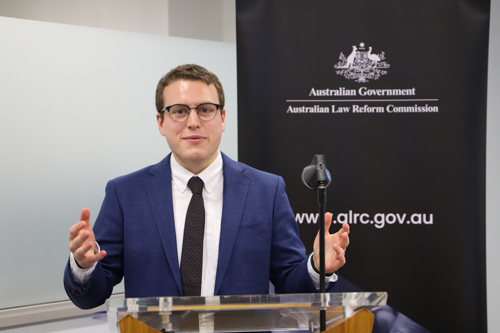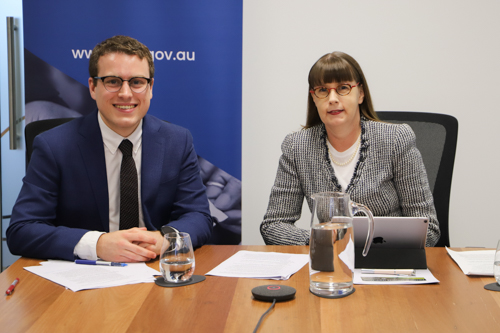25.05.2021
On Monday 17 May 2021 the Australian Law Reform Commission hosted a webinar exploring the initial findings of the Financial Services Legislation Inquiry. Over 370 people viewed the live stream, with hundreds more registered to receive the recording. Wolters Kluwer CCH Learning facilitated the live streaming, enabling an insightful, nationwide conversation with questions taken from the audience on registration and during the event.
View the webinar recording (via CCH Learning platform*).
Justice Sarah Derrington, President of the ALRC, welcomed attendees and emphasised the volume and detail of the quantitative data collected to date as part of the inquiry.
 Justice Middleton, part-time Commissioner of the ALRC and Federal Court judge, provided an overview, outlining the three topics which the ALRC has been directed to review:
Justice Middleton, part-time Commissioner of the ALRC and Federal Court judge, provided an overview, outlining the three topics which the ALRC has been directed to review:
- A first interim report focusing on the appropriate use of definitions in corporations and financial services legislation is due by 30 November 2021;
- A second interim report focusing on regulatory design and the hierarchy of primary law provisions, regulations, class orders, and standards, is due by 30 September 2022; and
- A third interim report focusing on potential reframing or restructuring of Chapter 7 of the Corporations Act is due by 25 August 2023.
Following the release of each interim report, the ALRC will seek formal submissions and feedback from stakeholders and the public, along with conducting consultations with key stakeholders and hosting webinars to engage a broad audience. A consolidated final report is due by 30 November 2023.
 Nicholas Simoes da Silva, ALRC Legal Officer, explored what legal complexity means and why it affects all Australians in the form of increased cost of, and less competition in, financial products and services. He then discussed the sources of complexity in the regulatory ecosystem for financial services, with a focus on the Corporations Act and the legislative instruments made by Ministers and ASIC.
Nicholas Simoes da Silva, ALRC Legal Officer, explored what legal complexity means and why it affects all Australians in the form of increased cost of, and less competition in, financial products and services. He then discussed the sources of complexity in the regulatory ecosystem for financial services, with a focus on the Corporations Act and the legislative instruments made by Ministers and ASIC.
Using original data analysis conducted by the ALRC across the entire Commonwealth statute book, Nicholas explained why the Corporations Act and related instruments are significant sources of complexity for regulated persons, consumers, and investors. Nicholas explored why the ALRC’s analysis suggests that legislative instruments are a particular cause of complexity. He also briefly examined individual relief instruments and regulatory guidance as sources and symptoms of complexity in the regulatory ecosystem.
Nicholas concluded with a summary of some of the ALRC’s initial ideas for simplifying the corporations and financial services law, and welcomed stakeholder views on complexity and simplification.
 A number of questions from the participants were discussed, including the following:
A number of questions from the participants were discussed, including the following:
- What assumptions should be made about who uses the law? Is it reasonable to assume that all people affected by rules should be able to make sense of them?
- How important does the ALRC consider it is to consider the interaction with other relevant areas of regulation like Tax and Credit?
- How is the ALRC considering the processes and costs associated with making material changes to financial services regulation?
- Does the Review have a set of guiding principles to shape this reform?
- Should Chapter 7 be removed from the Corporations Act?
Download The Financial Services Regulatory Ecosystem Webinar Presentation Slides
View the webinar recording: The Regulatory Ecosystem for Financial Services in Australia
*The recording and transcript are available via the CCH Learning Platform. Registration is required to view.
